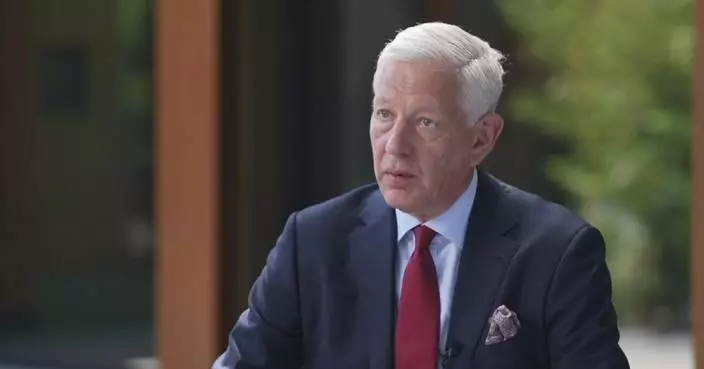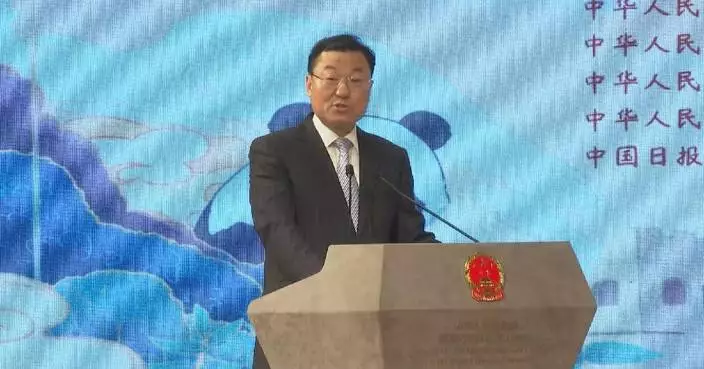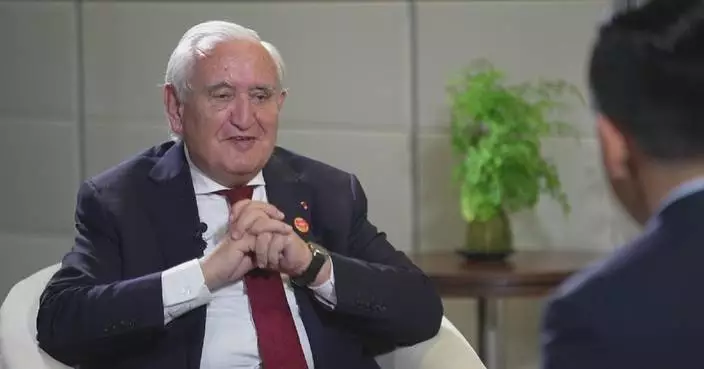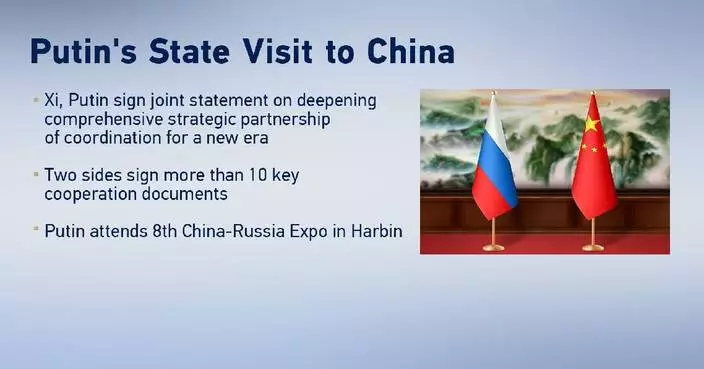French classical musicians felt immensely honored to bring harmonious melodies to cities across China and play alongside Chinese virtuosos, said Laurent Brunner, director of the Chateau de Versailles Spectacles, a grand annual show in France.
In celebration of the 60th anniversary of the establishment of diplomatic relations between France and China, the Orchestre de l'Opéra Royal de Versailles, which regularly performs for Spectacles, recently embarked on a tour of China.
Brenner stressed the profound significance of cross-cultural learning between musicians, speaking in an interview with China Global Television Network (CGTN) on Thursday in Hangzhou City, east China's Zhejiang Province.
"Most of the musicians never came to China before. They are very grateful to be here as guests to play a French traditional program of classical music, but also (showcase) a part of our culture. It's very interesting for us now, as musicians to come to China and to make those bridges and also to discover the music of others," he said.
According to the arts manager, an experimental show in Beijing ventured across cultural boundaries with an adventurous performance.
"For example, last month we played in the Forbidden City and part of our musicians made improvisation with Chinese musicians. It was very difficult only at the rehearsals, but then they knew very perfectly how to work together without anything written, without a [written] score. It was like the feeling. So, the feeling what can be better for musicians of different countries and languages. The music is its own language at that moment," Brenner said.
In southwest China's Sichuan Province, known as the home of giant pandas, the French musicians put on a special performance for the beloved bears.
"We were in Chengdu and I said we can do a concert for the pandas. And they told me, but this is nonsense, the pandas do not want a concert. I said, of course I know this. It's an honor to play it for them even when they are not hearing the concert, but it's an homage," he said.

French classical musicians delighted to share melodies in China: arts director
The Russian auto market has undergone a major shift in recent years,with Chinese brands surging in popularity and now capturing over half of new car sales in Russia.
Following Russia's conflict with Ukraine, major companies from Germany, the U.S., South Korea, and Japan ceased official sales, supplies, and services in the country, leading to a significant increase in prices for their cars and spare parts.
This void has been filled by Chinese car brands, whose market share in Russia surged to over 60 percent in 2023, nearly doubling from the previous year. In contrast, China held just a 9 percent market share in February 2022.
Ekaterina, an owner of a Chinese car who switched from a European brand, cited the complications in servicing her old car after Western car brands exited the Russian market. She highlighted the stability of Chinese car prices as a key factor behind her decision.
"A year ago, many people had concerns about whether to switch to a Chinese-made car and some of my friends decided to do so. People looked at the car, listened to the pitch, and made the choice naturally because the price is stable," she said.
Sergey Tselikov, director of the analytical agency Avtostat, predicts further growth in 2024, as Chinese companies have already exported record volumes of cars to Russia.
"First, almost all other brands have stopped supplying to Russia. Automakers in South Korea, Japan, Europe and the U.S. have halted supplies amid fears of sanctions," said Tselikov.
Tselikov also pointed to the significant quality improvements in Chinese car manufacturing over the past five to seven years as another reason for their popularity in Russia.
The share of dealerships selling Chinese cars in Russia witnessed a remarkable increase, rising from 31 percent to 65 percent in 2023, while the number of models and modifications continues to expand. Chinese automakers have even re-purposed some factories previously used by Western car manufacturers.
Russia is also encouraging localization efforts, hoping to revive its own car manufacturing industry.
"The [Russian] Ministry of Industry and Trade and the government are stimulating and trying to ensure that the cars are not only imported but assembled in Russia and then hopefully localized. In Russia, this is a problematic endeavor because it is very difficult to produce cheaper components in Russia than those produced in China," said Tselikov.
Russian companies are seeking collaboration with Chinese firms to domestically assemble Chinese cars. Moskvich, a long-established Soviet-era car company, has started assembling Chinese cars under its own brand.

Chinese cars reshape Russia's auto industry as Western brands scale back










